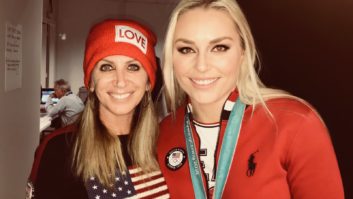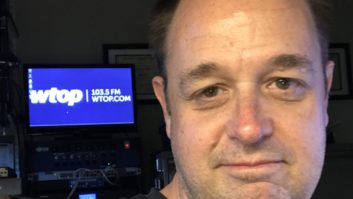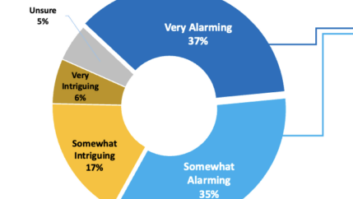
Zach Akey at the helm in Rio.
Creating Westwood One’s radio broadcast operation for the recent Olympic Games in Brazil was no doubt a massive undertaking. Zach Akey, whose day job is director of engineering and broadcast IT for the Washington, D.C., market overseeing the technical aspects of our news and talk facility located there, rode herd as the project manager and engineer in charge.
Radio World: How many Olympics is this for you?
Zach Akey: This is my third Olympics. I started at the London 2012 games as the onsite engineer using a rig designed and built by our team in New York. Sochi was my sophomore showing, and I had much larger role in design revisions for Russia. This time around is my first as project manager and engineer in charge.
RW: What is the biggest challenge in setting up an operation as big and complicated as an Olympic remote and how does it compare to other remotes you’ve done?
Akey: The biggest challenges are time and logistics. Build time is significant back in the U.S. and we conduct full dry runs before anything is shipped out. It can be difficult to juggle daily responsibilities with putting together a studio away from the studio. Also, shipping five tons of sensitive electronic gear thousands of miles away and expecting it to work is also challenging.
It couldn’t have been done without the crew: the Build Team — Robert Diaz, Bob Mack, Roger Endres, and me; the Onsite Team — Trevor Marriot and me; and the Leadership Team — Conrad Trautmann, Eric Wiler and Bob Mack.
RW: Did Brazil provide any special challenges — such as infrastructure, grid, facility problems?
Akey: ISDN BRIs are a commodity in the U.S. that is sunsetting in most places, but it still exists reliably in many. However, in Brazil many Olympic broadcasters, including us, had difficulties getting our codecs to function on their equipment. This was mostly due to the fact that the service is used differently here in most cases. Because of that and the language barrier we found ourselves having difficulty getting the telco to properly provision their emulated circuits. Thank God for AoIP.
RW: What has been the most difficult Olympics (or other remote)?
Akey: Each Olympics remote poses its own serious difficulties. This time around, a telecom ordering glitch forced us to accept our broadcast circuits on MADI when we had planned for (and ordered) analog. A scramble ensued, and we were fortunate to obtain a converter with time to spare.
RW: How has the equipment changed since you started as a broadcast engineer?
Akey: It has gotten smaller, now it has IP, and, unfortunately, in some cases it’s less rugged and reliable. We seem to have moved to a consume-and-dispose paradigm with certain types of gear. On the upside, once exotic technologies are now cost-effective and we have more choices as system designers.
Related:
Inside Westwood One @ Rio
See more Five Questions subjects here.











